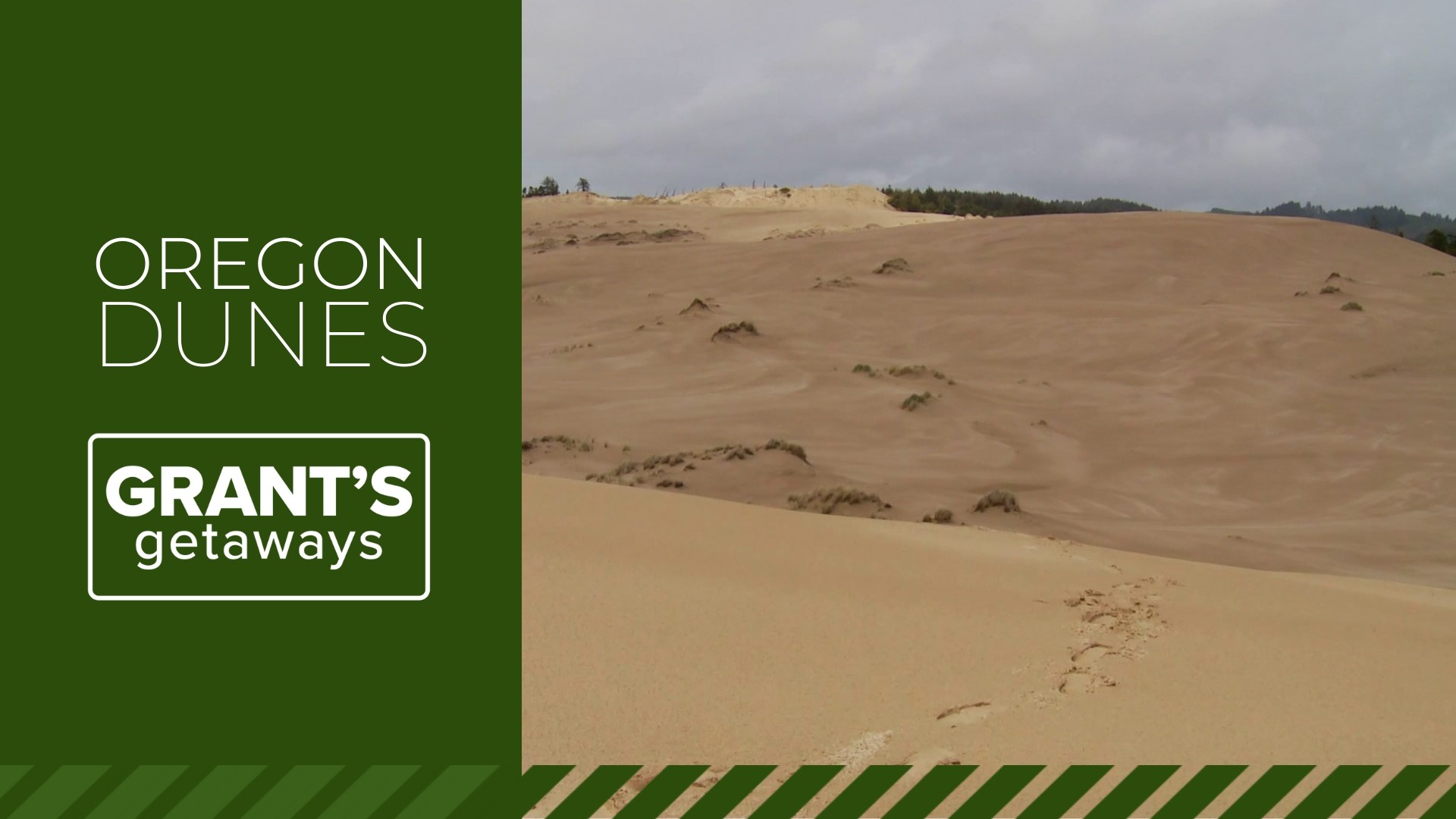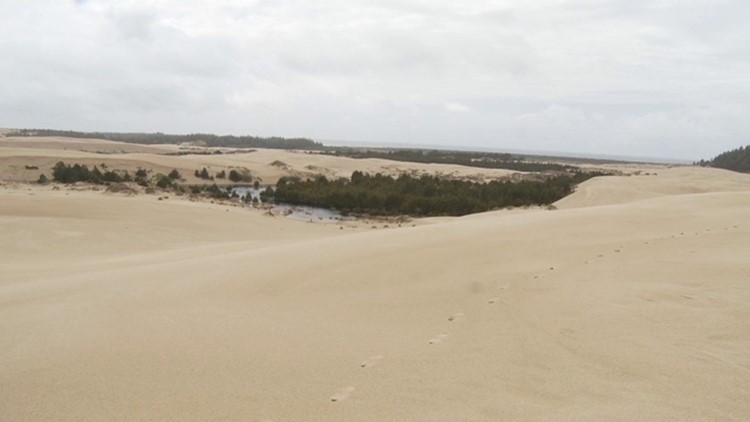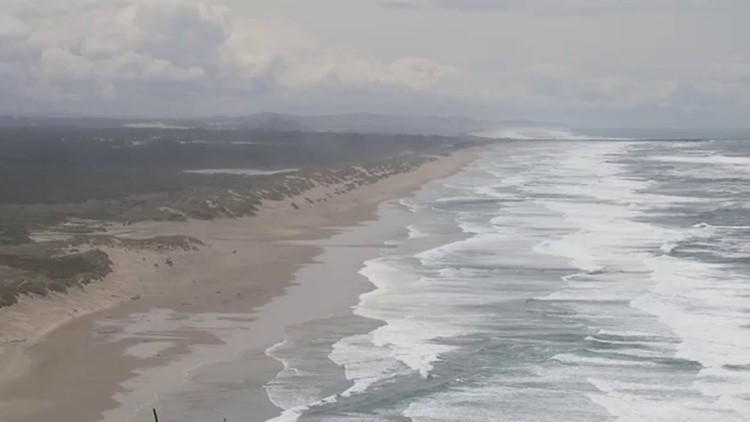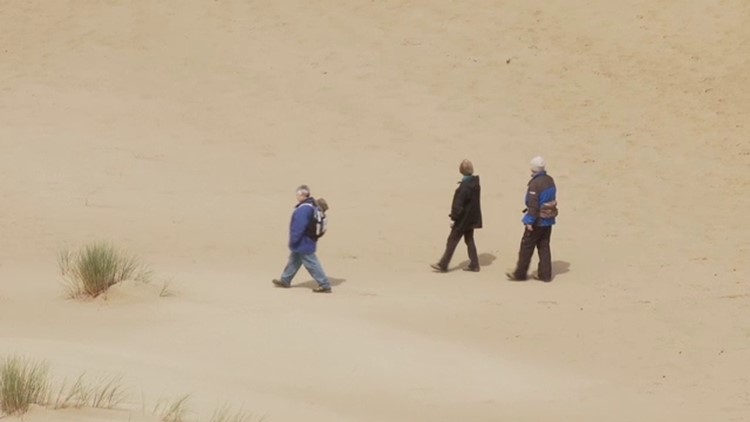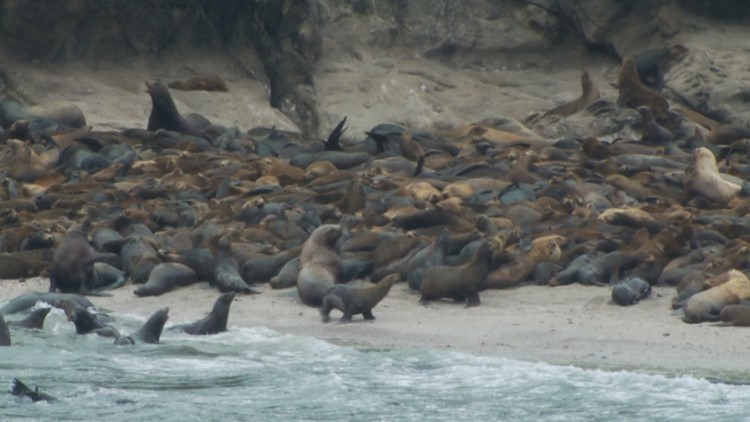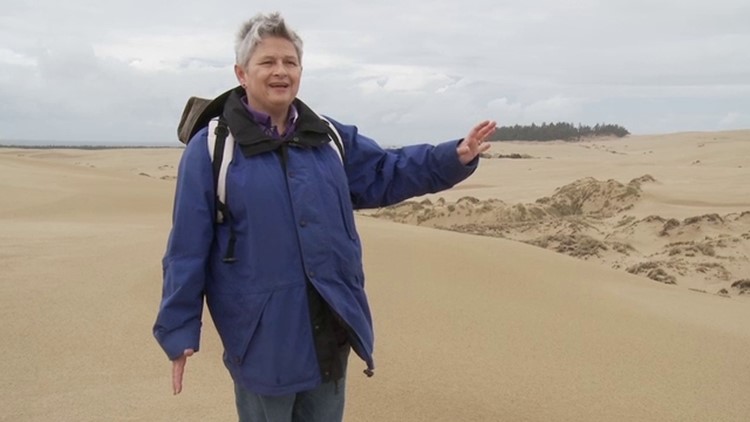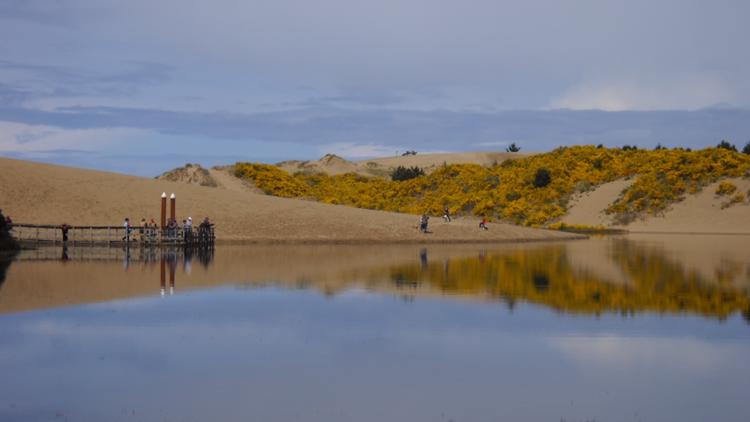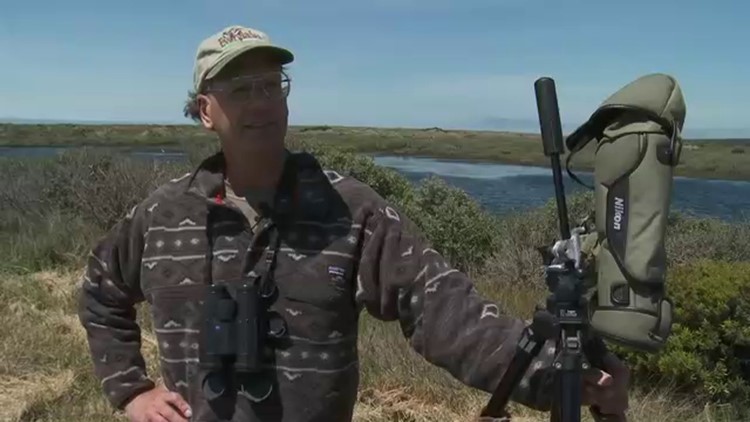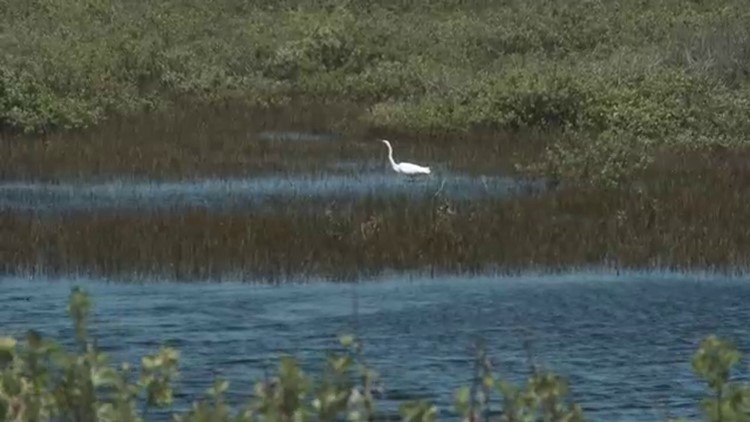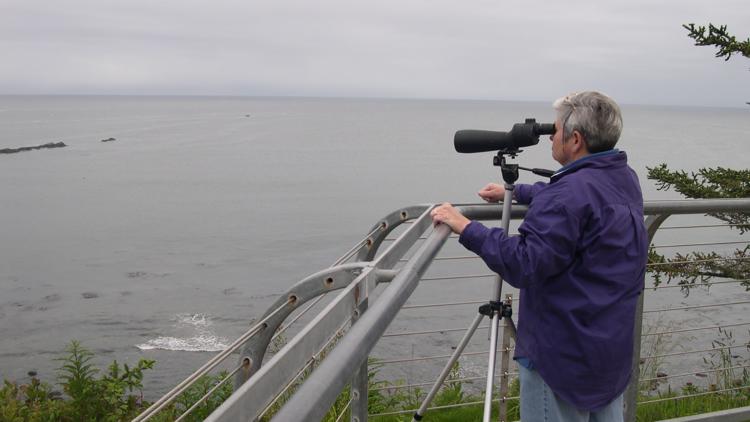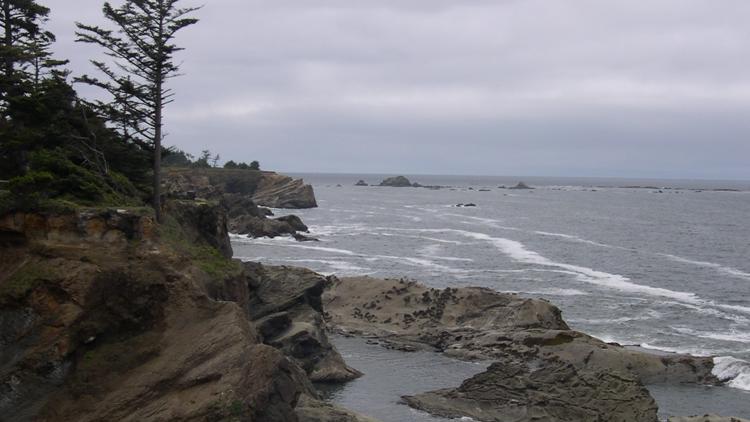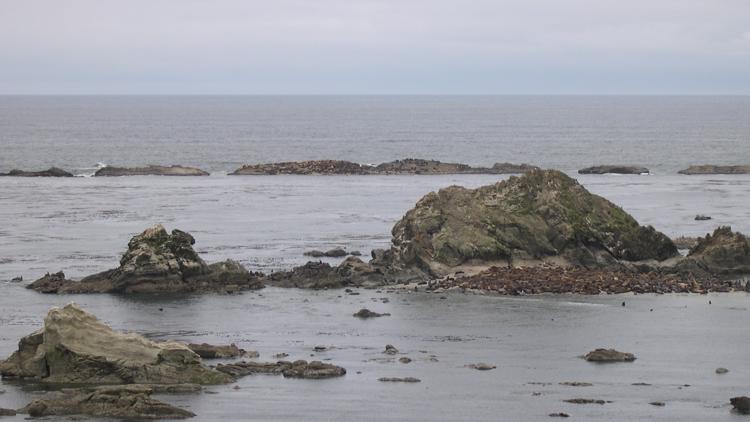LAKESIDE, Ore. — At long last, summer has arrived and that may have you thinking more about travel and camping trips across Oregon.
So, consider adventures along the 363-mile Pacific Coast Scenic Byway and a stop at the Oregon Dunes, our "Sahara by the Sea."
It is an ageless place in a timeless setting and one of the most unique features along the Oregon coast.
The Oregon Dunes National Recreation Area covers 42 miles from Florence to Coos Bay and it is an Oregon landmark for outdoor recreation.
It is a sight that takes the breath away and fills us with surprise, a coastal treasure that many families consider a giant sandbox with plenty of elbow room to stretch out and play.
People come from all over to experience 32,000 acres of sand, forest, rivers and lakes.
"Don’t forget your hiking boots when you visit the dunes," said local guide Marty Giles.
I recently joined Giles, who operates Wavecrest Discoveries, and we explored the dunes via the John Dellenback Dunes Trail at the Eel Creek Campground.
Photos: The Oregon Dunes
She told me that many folks are surprised to learn that the vast sand and dunes didn't come from the ocean, but from the mountains.
"The sand is really tiny bits of rock or crystals that are broken apart, brought from the mountains down to the ocean," Giles said. "The sand grains that we're standing on came down the streams and rivers, down the ocean when the sea level was lower, and then were pushed back up as the sea level rose up."
Hiking across the dunes really puts you in touch with a unique story of Oregon's geography. Giles noted that some of the dunes reach 500 feet tall and are among the highest dunes in the world.
It is a place that is fascinating, complex and ever-changing.
"Everybody likes the open sand," Giles said. "Everybody likes the openness and dynamics of things changing. When the wind blows, it feels wild and everybody likes that."
It isn't hard to like the southern edge of the dunes, said Tim Roderick, a friend of Giles and Coos Bay Audubon member.
He and Giles love to get folks off the highway and onto Coos Bay's North Spit where the wildlife live.
"My list for this site alone is close to 250 bird species, which is better than any spot I know of on Oregon's south coast," Roderick said.
Nearly 1,000 acres of mixed wildlife habitat make the North Spit of Coos Bay a prime site for watching wildlife, plus easy hiking trails allow access to miles of quiet shoreline.
"There’s nothing like it on the south coast," Roderick said. "You are on a spit of land with the bay on one side and a beach on the other and freshwater wetlands and ponds in between. So as the birds fly by they see this unique habitat and they come down they use it."
Further to the south at Cape Arago State Park, thousands of seals and sea lions use Simpson Reef and Shell Island.
"We have rocky shorelines and sandy beaches, we have dunes, we have nearby wilderness areas, we have forests," Roderick said. "It's a huge variety of publicly accessible recreational opportunities in a very small area."
The Pacific Coast Scenic Byway is a roadway once taken, you'll never want to leave – and aren’t we lucky it's true!
More of Grant's Getaways
Be sure to watch the weekly half-hour program of Grant’s Getaways. The show airs each Saturday and Sunday at 4 p.m. on KGW.
For something different, you can follow my Oregon adventures via the Grant’s Getaways Podcast: Each segment is a story-telling session where I relate behind the scenes stories from four decades of travel and television reporting.
You can also learn more about many of my favorite Oregon travels and adventures in the Grant’s Getaways book series, including:
- "Grants Getaways I," Photography by Steve Terrill
- "Grant's Getaways II," Photography by Steve Terrill
- “Grant’s Getaways: 101 Oregon Adventures,” Photography by Jeff Kastner
- “Grant’s Getaways: Guide to Wildlife Watching in Oregon,” Photography by Jeff Kastner
- “Grant’s Getaways: Oregon Adventures with the Kids,” Photography by Jeff Kastner
The book collection offers hundreds of outdoor activities across Oregon and promises to engage a kid of any age.
You can reach me at Gmcomie@kgw.com.

